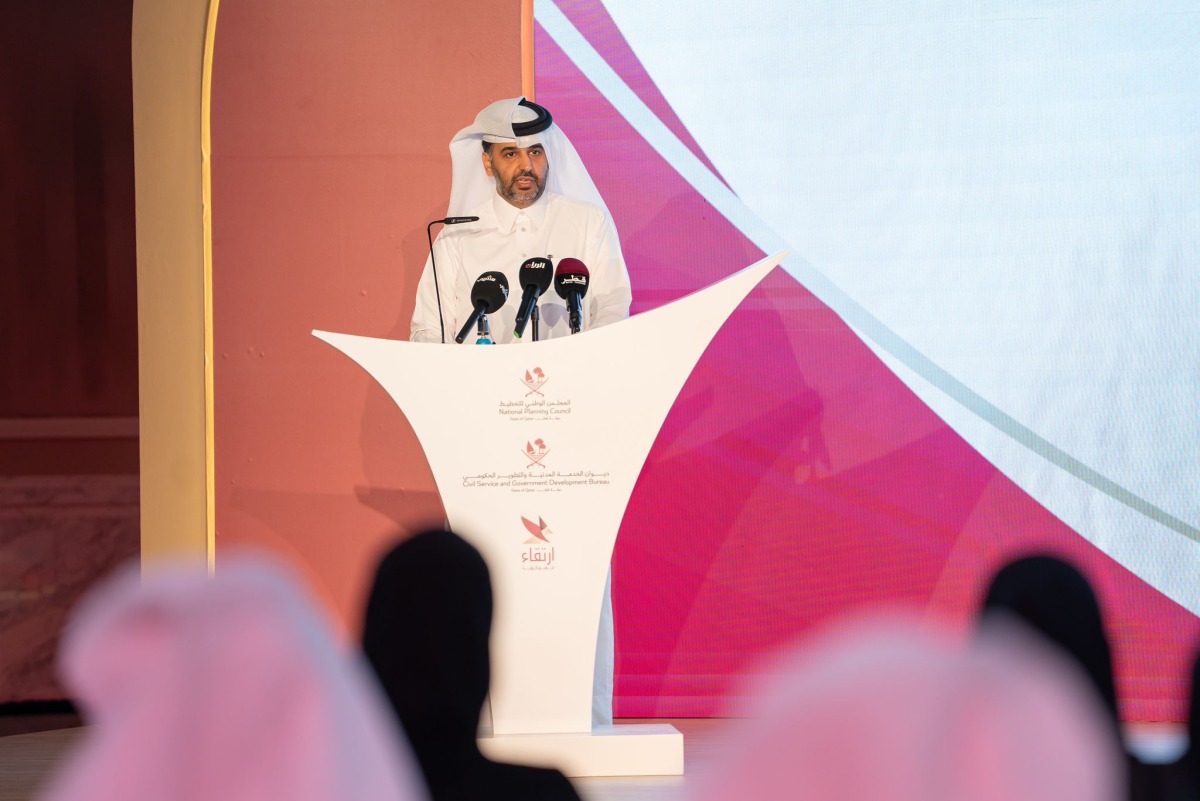The inaugural edition of the “Irtiqa” programme was launched in Doha, Qatar by the President of the Civil Service and Government Development Bureau and Secretary-General of the National Planning Council, H E Abdulaziz bin Nasser bin Mubarak Al Khalifa. A joint initiative between the National Planning Council and the Civil Service and Government Development Bureau, the programme aims to enhance the skills of teams managing projects under Qatar’s Third National Development Strategy (NDS-3), in alignment with Qatar National Vision 2030. The programme will welcome 50 participants from ten government agencies involved in projects under NDS-3, and it is structured to build essential skills to support effective project implementation, ensuring projects contribute successfully to the nation’s long-term development goals.
In his address, Al Khalifa emphasized that the programme reflects Qatar’s commitment to developing human resource capabilities, equipping civil servants with international best practices, and fostering excellence in implementing national development plans. He described Irtiqa as an investment in human capital, focused on empowering government teams to execute their tasks with high efficiency, consistent with NDS-3 objectives. The Irtiqa programme includes a comprehensive array of applied training modules and intensive skill-building sessions tailored to the practical needs of participants, enabling them to make direct contributions to their respective projects. It also integrates cutting-edge technologies, including virtual reality and generative artificial intelligence, offering an innovative educational experience that enhances learning outcomes and enriches the project development process.
The overarching goal of the Irtiqa programme is to cultivate a proactive, adaptable civil service dedicated to achieving the national goals outlined in Qatar National Vision 2030. By equipping government representatives with the tools needed for effective project management, the programme plays a crucial role in driving national development forward. The programme is set to continue through July and is designed to provide participants with the necessary skills and knowledge to ensure the successful implementation of projects under NDS-3, ultimately contributing to the nation’s long-term development goals.
With a focus on enhancing the skills of government teams managing projects under NDS-3, the Irtiqa programme aims to provide participants with a practical and applied educational experience. By offering tailored training modules and intensive skill-building sessions, the programme enables participants to directly contribute to their projects while aligning with the objectives of NDS-3. The inclusion of cutting-edge technologies such as virtual reality and generative artificial intelligence further enhances the learning experience, ultimately enriching the project development process. By investing in human capital and empowering civil servants with the necessary skills, the programme ensures that government teams are equipped to successfully execute their tasks and drive national development forward in alignment with Qatar National Vision 2030.
The launch of the Irtiqa programme in Doha, Qatar signifies the country’s commitment to developing human resource capabilities and fostering excellence in implementing national development plans. With a focus on empowering government teams to execute their tasks with high efficiency, the programme serves as an investment in human capital. By providing participants with a comprehensive array of applied training modules and intensive skill-building sessions, the programme equips them with the necessary skills to contribute to their projects effectively. Additionally, the integration of cutting-edge technologies in the programme enhances the learning experience, ultimately enriching the project development process. By cultivating a proactive and adaptable civil service, the programme plays a crucial role in driving national development forward and achieving the goals outlined in Qatar National Vision 2030.











